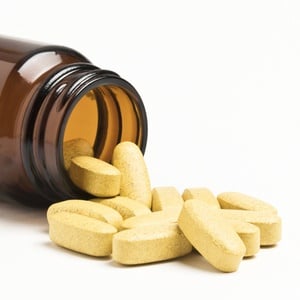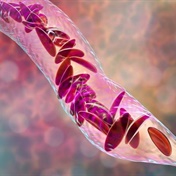
Iron deficiency is one of the most common causes of anaemia and is often treated with iron supplements to correct the shortage of oxygen-carrying haemoglobins in the blood.
When your doctor advises you to start taking iron supplements, it can be a challenge to choose the right one with so many options on the market. Here are some tips to help you choose the best iron supplement for your purposes:
1. Determine which form you prefer
Iron supplements are available in liquid, tablet or capsule form. Depending on your lifestyle and preference, you might want to go for a slow-release supplement. Your doctor will tell you the exact dose you need and might also recommend the exact type of supplement. Some people struggle to swallow non-chewable pills, while others are worried that a liquid may stain their teeth.
2. Determine the exact dose you need
Too much iron can be toxic to the liver and cause serious health problems. The best way to determine your optimal dose is to have your doctor do blood tests. Take your iron supplements as instructed. It is recommended that adult males take 8mg of iron and adult females 18mg per day. A recommended amount of 27mg of iron daily is recommended for pregnant women.
3. Check the level of elemental iron
Iron supplements are sold under the names ferrous sulphate, ferrous fumarate and ferrous gluconate. The amount of iron displayed on the label can be confusing; it is therefore important to determine the level of elemental iron in the supplement. All three forms of iron are well-absorbed by the body, but their elemental iron levels differ. Ferrous fumarate contains the highest amount of elemental iron, but the dose may be too strong for some and therefore ferrous sulphate may be suggested – which is also a more affordable version.
4. Know thy iron
There are two types of dietary iron. Haeme iron is the type of iron that we only find in animal products such as red meat. This type of iron is most easily absorbed by the body. Non-haeme iron is is found in plant products as well as meat, but the absorption of this type may be hindered by substances like caffeine, or plant compounds such as phytates. Fortunately vitamin C can help you absorb non-haeme iron.
5. Only take an iron supplement if needed
If you're suffering from fatigue and frequent headaches, get a doctor's opinion before you start shopping for iron supplements. A supplement alone might not be able to treat severe iron deficiency and you may also need to increase your dose of vitamin A to help with iron absorption.
6. Check the possible side-effects
It's normal to experience some side-effects from iron, such as constipation, dark stools, a strange taste in your mouth or an upset stomach. But if these side-effects are severe and unpleasant, you might want to switch to a different iron formulation such as an iron amino acid or a ferric supplement instead of a ferrous supplement. The difference lies in the oxidation process of the iron.
Image credit: iStock




 Publications
Publications
 Partners
Partners















